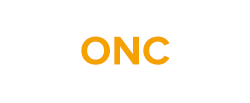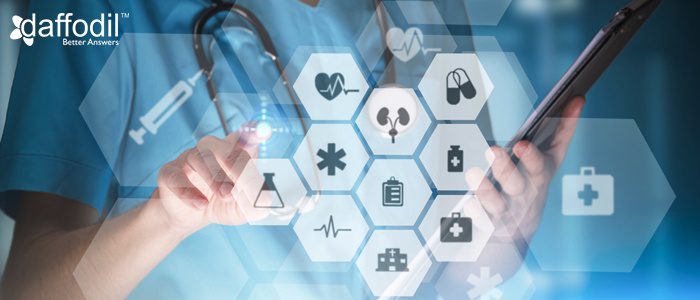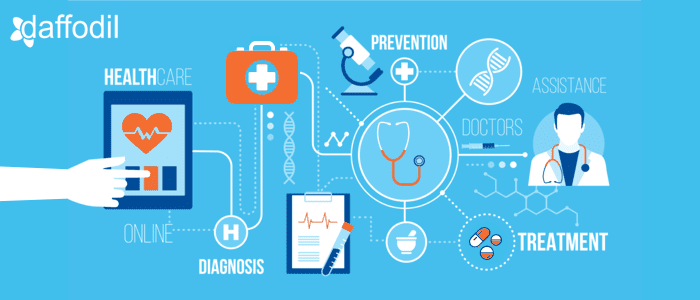Trusted by:
Our expertise in healthcare IoT solutions and services
Monitor your patient’s health and well-being from a distance. We help you develop healthcare IoT solutions that allow you to continuously track and monitor a patient’s health and well-being remotely. This comprehensive and real-time information can enable healthcare providers to take timely decisions and deliver personalized care
IoT devices generate huge amounts of healthcare data which can help in driving meaningful insights. We help you develop advanced data analytics solutions that help healthcare organizations to identify trends and patterns. The generated insights even help with risk assessment.
Our IoT services also include designing smart hospital spaces that improve patient experiences and operational effectiveness. We allow automated asset tracking, real-time location services, and environmental monitoring by integrating IoT-enabled devices. Smart hospital solutions optimize resource use, improve patient flow, and streamline processes to improve patient safety and happiness.
Real-time tracking and evaluation of patients’ vital signs such as pulse, blood pressure, and glucose levels. Ongoing analysis of patient’s health information to enhance disease treatment and management, facilitating improved care decisions. Notifying a nurse and a doctor when health parameters deviate from the norm.
Our IoT solutions allow healthcare facilities to manage and optimize staff schedules and patient flow in real-time. This helps in increasing security, enhances resource management, and spots internal process bottlenecks.
Integrate IoT-enabled devices and systems with your current IT ecosystem with minimum disruption. We ensure minimum downtime, seamless integration, and effective communication between systems.
Our success stories healthcare IoT solutions
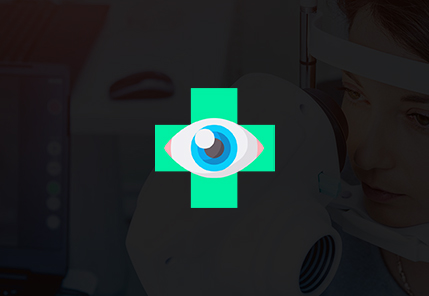
Developing a comprehensive EHR system for the largest eye care group in the United States
Read More >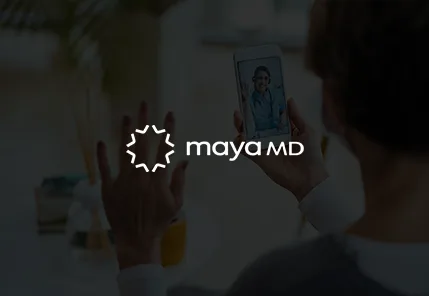
Developing an AI-powered telehealth application for a US-based health tech firm
Read More >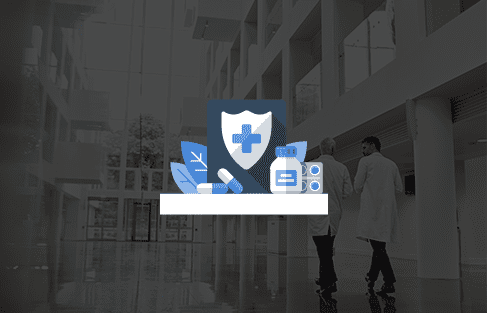
New York’s leading hospital reduces door to balloon time for STEMI patients through an emergency response app
Read More >Meet all quality standards and compliance in your healthcare IoT solutions
Our customized IoT healthcare solutions development services strictly adhere to medical standards and compliances. Data security is the cornerstone of our software solutions. Our policies ensure data interoperability and secure electronic access. We are compliant with standards for the exchange, integration, sharing, and retrieval of electronic health information. We also follow international standards to transmit, store, retrieve, print, process, and display medical imaging information.
- Adherence with Healthcare Standards such as HIPAA, HL7, FHIR, CDA, DICOM, etc.
- Compliance with ISO 9001:2015 certifications
- Expertise in Medical terms usage (SNOMED)
Bottomline metrics that can be elevated with custom healthcare IoT solutions

Redefining healthcare with IoT expertise:
At Daffodil Software we are at the forefront of driving digital transformation in the healthcare sector. Our vision is to redefine the healthcare landscape with IoT. With a deep understanding of IoT technologies and their limitless potential, we aim to enhance healthcare delivery and strengthen healthcare organizations.
We hold 20+ years of domain expertise in healthcare software development and have experience working with 100+ clients across the globe. This wealth of experience enables us to comprehend the intricacies of healthcare IoT solutions, embrace the digital revolution, and deliver cutting-edge IoT-enabled products and services.
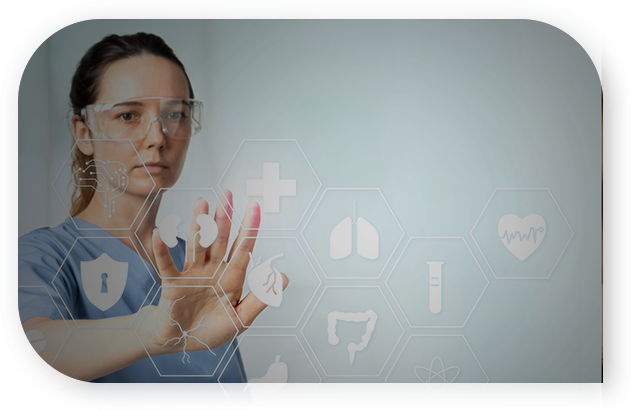
The new pulse of the healthcare ecosystem: IoT Solutions

Experience personalized healthcare with integrated IoT technology solutions. Patients can measure vital signs, monitor their health in real time and get personalized information through linked devices and wearables. Our IoT solutions allow people to take charge of their health and well-being and make educated decisions.

Utilize the power of IoT to revolutionize how physicians provide care to patients. By integrating IoT devices, hospital systems can optimize resource allocation, improve patient flow, and enhance operational efficiency.

Experience the magic of real-time tracking for medical equipment like wheelchairs, nebulizers, oxygen pumps, and more, all made possible by IoT devices equipped with smart sensors. They play a crucial role in hospitals by enabling devices to help in preventing patients from getting infected. IoT devices also help in asset management like pharmacy inventory control, for instance, checking refrigerator temperature, and humidity.

Our IoT solutions enable health insurance companies to leverage data captured by IoT devices for more accurate risk assessment, fraud detection, and personalized underwriting. IoT-generated data can give insurers a deeper understanding of people’s health patterns and behaviors, enabling more specialized insurance policies and proactive risk management. Health insurance firms may improve client experiences, restructure procedures, and increase operational efficiencies by integrating IoT into their business operations.
The future of IoT applications in healthcare
Sensor-equipped smart beds can automatically adapt in hospitals to offer the best pressure and support, improving patient comfort. Additionally, they can notify medical personnel when a patient is attempting to stand up, lowering the danger of falls. Additionally, smart beds can track vital indications like heart rate, respiration rate, and sleep patterns, giving healthcare professionals useful information. They can even tell if a patient’s heart has stopped or if their respiration has ceased, allowing medical staff to act right away. Future smart beds are anticipated to be considerably more advanced, thanks to the fusion of artificial intelligence and IoT (Internet of Things), raising the bar for patient care and safety.
Medication dispensers are transforming how patients follow their prescription regimes in the world of IoT healthcare. These intelligent devices can store, organize, and dispense the right dosage of medication at the right times; thanks to their internet connectivity. The likelihood of drug errors, a serious problem in patient care, is greatly decreased by this automation. Additionally, these dispensers frequently have alert systems that notify patients when it’s time to take their medications via text messages, emails, or loud alarms. The dispenser has the ability to alert family members or medical professionals if a dose is missed.
Patients can now swallow sensor-equipped devices designed like pills. Once consumed, these sensors send data to a smartphone app, helping patients remember to take their medicines as prescribed. Due to forgetfulness or other human errors, patients frequently fail to take their prescription drugs as directed. This technology addresses this problem. Ingestible sensors support diagnostic procedures in addition to ensuring that patients take the appropriate medications at the appropriate times and in the proper amounts. A few ingestible sensors are being utilized to precisely identify diseases including colon cancer and irritable bowel syndrome. Notably, the usage of these devices has been authorized by health authorities and they were created with patient safety in mind.
Moodables are mood-enhancing devices that help in improving our mood throughout the day. Moodables use neurostimulation technology, a secure and non-invasive way to stimulate particular brain parts. The neurological circuits that this technology is intended to target can lead to a range of mood states. For instance, it may support relaxation, attention, or stress reduction. These wearable gadgets frequently come with an app that lets users manage and personalize their experiences. Additionally, the app may monitor mood swings and offer suggestions of how certain factors might be influencing the user’s emotional state. In the future, Moodables might be applied in therapeutic settings to help treat illnesses like anxiety or depression.
The next frontier: Emerging IoT-driven trends in healthcare
Nanotechnology has the potential to revolutionize the health industry. Nanobots, tiny robots, could be programmed to carry out specific tasks inside the human body. They might be used, for example, to deliver precise drug doses to cancer cells, minimizing the negative effects of therapies like chemotherapy. Alternatively, they might take high-resolution pictures from inside the body, offering unheard-of insights into human biology, or to mend damaged tissues at the cellular level.
BCI technology includes building a direct line of communication between the brain and an outside object. With this technology, people with paralysis or other severe physical limitations could regain their ability to move. One may steer a wheelchair or artificial limb by using only their thoughts, for instance. In the future, BCIs might potentially be used to convert ideas into writing or speech, giving patients with diseases (like locked-in syndrome) new avenues for communication.
Implanted beneath the skin, biochip transponders are tiny devices that may be used as portable health records. Important data including a person’s blood type, allergies, medical history, and even real-time biometric data could be stored in them. In an emergency, medical personnel might instantly obtain this information by scanning the biochip, potentially saving important time and enhancing treatment results.
A surgeon could use augmented reality (AR) glasses in a surgical environment to view real-time data such as patient vitals or 3D models of the area being operated on. By increasing the surgeon’s situational awareness and accuracy, may lower the possibility of problems and enhance patient outcomes.
The Internet of Things (IoT) has the potential to accelerate and lower the cost of genome sequencing. This might result in a rise in the usage of personalized medicine, in which a patient’s genetic profile is used to customize their treatment. For instance, medical professionals could anticipate how a patient would react to a specific prescription and change the dosage or opt for a different medication.
Why Daffodil Software
Recognized excellence, proven customer satisfaction
Categorized as an aspirant in global PEAK Matrix assessment
Recommended vendor for custom software development services
Mentioned as a company to watch in the AI space
Categorized as a leader in digital engineering services
20+
years of software engineering excellence
150+
global clientele
4.8
Avg CSAT score
95%
customer retention rate
We create agile and adaptable IoT healthcare solutions to help you improve patient outcomes.
Watch our brand video.
Sign up for a 30 min no-obligation
strategic session with us
- Validation of your project idea/ scope of your project
- Actionable insights on which technology would suit your requirements
- Industry specific best practices that can be applied to your project
- Implementation and engagement plan of action
- Ballpark estimate and time-frame for development
Frequently asked questions (FAQs)
The use of linked devices for health monitoring and medical interventions is referred to as the Internet of Things (IoT) in healthcare, also known as the Internet of Medical Things (IoMT). IoT devices can perform therapeutic tasks or gather, analyze, and transmit health data. IoT, for instance, can support real-time monitoring of patient’s vital signs, enabling speedier and more proactive reactions to medical crises. Additionally, by providing remote patient care and tracking drug adherence, it can cut down on hospital stays and readmissions.
In the context of healthcare, the Internet of Things (IoT) refers to a network of software programs and medical devices linked to healthcare IT systems via internet computer networks. These devices include everything from conventional medical sensors to implantable devices.
There are various examples of IoT devices in healthcare. One common example is wearable health monitors. These health monitors track patients’ heart rates, sleep patterns as well as physical activities. Other examples include smart beds, connected inhalers, smart pills, personal emergency response, telemedicine, and remote patient monitoring tools, etc.
IoT in healthcare has the potential to completely transform many facets of patient care, diagnosis, and treatment. Future developments in remote patient monitoring will make it possible for medical professionals to keep track of patients continuously without requiring hospitalization. As linked devices collect and analyze massive quantities of data, IoT will also play a significant part in personalized medicine. The use of IoT in controlling chronic diseases, enhancing drug adherence, and even anticipating health issues before they become serious are other possible advancements. As with any technology, it is crucial to deal with potential issues including data security and privacy concerns.




